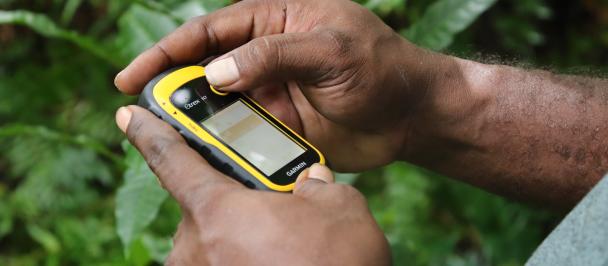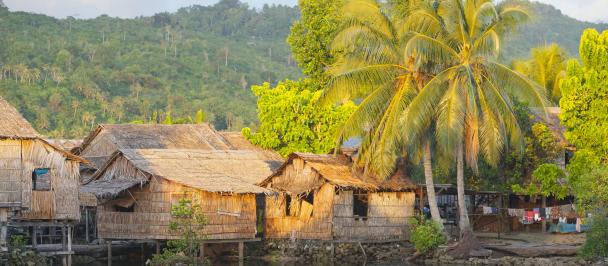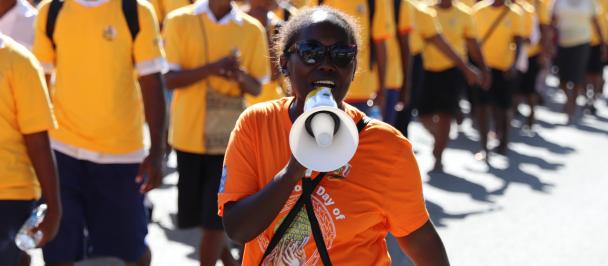Anti-Corruption march in Solomon Islands (Photo: UNDP/Ednal Palmer)
Corruption has long been an issue of public discontent in Solomon Islands, and is seen as a major obstacle on the path towards sustainable development. A 2013 survey conducted by Transparency Solomon Islands[1], 56% of respondents paid a bribe to assist with a police issue; 42 percent paid to facilitate registry and permit services; and, 49 percent made an informal payment to facilitate land registration or related services over and beyond what was legally required. While the situation has improved since, it remains a major development challenge.
Recognizing that corruption affects the effectiveness and efficiency of the public service and costs governments’ millions of dollars in losses, the Government of Solomon Islands, through the Office of the Prime Minister, partnered with the United Nations Development Programme (UNDP) to design a comprehensive programme to tackle the corruption challenge holistically, focusing on integrity institutions, public service, private sector and the civil society. As a result, the “Transparency and Accountability for the People of Solomon Islands Project (TAP)” full scale project was launched in 2019.
The anticorruption initiative is generously funded by the Government of Solomon Islands, through the local cost-sharing modality (in excess of USD 1m) thus demonstrating strong national commitment and towards the anti-corruption agenda. Under this initiative, UNDP is providing policy advice, capacity development support, as well as implementation services to move the national anticorruption agenda forward. The TAP project also supports Solomon Islands to deliver on its commitments under the United Nations Convention Against Corruption (UNCAC, as the only international legally binding framework on how to prevent and fight corruption, and the Agenda 2030 and Sustainable Development Goals (SDGs), specifically SDG 16 which calls for stronger action on anti-corruption, transparency and accountability.
Solomon Island leaders and Members of Parliament join the Anti-corruption march (Photo: UNDP/Ednal Palmer)
Among the main milestones reached by the Project in 2019, are the revision of the National Anticorruption Strategy and the Action Plan (2017-2019) and technical support to the establishment of the Solomon Islands Independent Commission Against Corruption (SIICAC). In collaboration with the Office of the Prime Minister and the relevant national institutions, a dedicated induction workshop was organized for the newly appointed SIICAC commissioners. The workshop offered insights into global and regional best practices, key principles, duties and responsibilities, as well as other pertinent information to help the commissioners as they prepared to take up the important new role. The TAP Project also partnered with 10 civil society organizations and provided small grants to raise public awareness and support anticorruption initiatives in selected rural communities in Solomon Islands.
In his public address at the 2019 World Anti-Corruption Day, Prime Minister Manasseh Sogavare emphasized the importance of the fight against corruption and reiterated the firm commitment to “…rid our country of this malignant culture.” The Prime Minister also thanked UNDP for persistently supporting the government in combating corruption.
With the growing support and recognition across the institutions, civil society, and the development partners, the Project is committed to continue assisting Solomon Islands in building effective, accountable and inclusive institutions at all levels. This is in line with country’s commitments to accelerate progress against the Sustainable Development Goals agenda through the ‘whole-of-society’ approach.
The TAP project is drawing on the achievements and expertise within The United Nations Pacific Regional Anti-Corruption (UN-PRAC) project funded by the Australian Government. UN-PRAC is being implemented jointly by UNDP and UNODC teams based in Suva, Fiji.
[1] https://www.transparency.org/gcb2013/country?country=solomon_islands

 Locations
Locations





